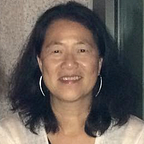Web Literacy Leaders: Fueling the Movement Together
With funding from the Institute of Museum and Library Services, the first cohort of Mozilla Web Literacy Leaders met on July 18–19 in Chicago to continue growing their open leadership skills. Through skill sharing and design thinking they deepened their knowledge about web literacy and what it will take to support a healthy internet.
Here’s a snapshot of what was shared and learned.
Skills Sharing, Teaching, and Leading
On the first day, The Chicago Community Trust graciously opened their space to us, and the web literacy leaders had a chance to practice teaching each other skills relevant to their projects and leadership work. Examples of skill shares include:
- How to frame web literacy for stakeholders and the concept that web literacy is “socio-technical” or made up of both the nuts and bolts of the internet and a social layer, where people learning the web are both constrained by and empowered by the environment of the web.
- How to create and encourage a culture of learning among staff by using empathy and backwards design using the needs of the learner as the starting point for planning. How to model a “guide by the side” teaching style while creating & encouraging a culture of learning among staff.
- How to frame activities Privacy and Security in a way that will create urgency without fear.
- Activities and discussion around building badges and micro-credentials.
- How to understand implicit bias and algorithms, showing that just as people are have preferences or biases, so too can algorithms.
Inspiration, Ideation, Implementation
On the second day, we spent the morning engaged in design thinking to further their projects and leadership goals in their communities. Design thinking is a deeply human process that taps into abilities we all have but often get overlooked by more conventional problem-solving practices. Web literacy leaders started by developing personas to empathize with their patrons, clients, and other end users, in particular, thinking about users who have been historically difficult to reach or successfully serve.-
We practiced a “Yes, and…” mindset to first define the problem we would solve for then brainstormed, ideated, and prototyped solutions through rapid collaboration and continuing to embrace a sky-is-the-limit mindset.
Web Literacy Leaders walked away with their own inspirations and a-ha moments from the meeting:
- Davis shared her thoughts in Web Literacy Leaders Convening in Chicago: Take-aways
- Matthew shares his insights about the need for coalitions to drive a healthy internet in Internet Health: Healthy IRL Coalitions
- Kelly’s reflections are in Web Literacy Leaders — What Internet Health Means to Me and My Community,
- Sherry posits Remedies for a Healthier Internet,
- and Liza’s musings on the convening.
We look forward to sharing more updates with everyone as the Mozilla Web Literacy Leaders embark on their journeys and prepare for MozFest 2017.
